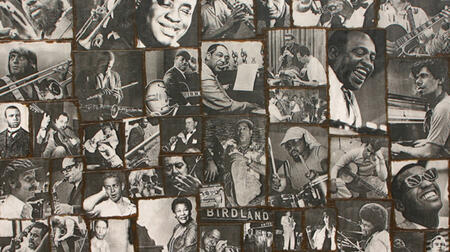the state of jazz - mar 21st, 2012

One of the perks of running an all ages jazz club is being privy to the growth and development of creative musicians – the journeymen, as well as the young up-and-coming lions. It takes years of hard work to achieve any type of success, and playing jazz music is no exception. The musicians of today have unprecedented tools and options at their disposal. Not only are there numerous reputable music schools all across the country, but there are lots of dedicated, encouraging, and inspiring teachers in the junior colleges and high schools, many who happen to be talented musicians themselves.
But even better, technology has made it possible to instantly listen to just about any jazz song performed by anyone who ever recorded it. And, in many cases, you can watch and study their performance on YouTube. Notated music for any song is readily downloadable . You can even watch step by step video lessons and tips on technique on YouTube. In addition, there are hundreds of books, biographies, interviews, reviews, opinions – all within an easy click.
There was a time, not so long ago, back when much of the music considered classic today was conceived, created, and recorded – when none of this was available. You only heard about cats who could really play – word spread by mouth, person to person, not by texting. Music was handwritten and passed around. Google, YouTube, and iTunes were faint figments of the imagination.
Nevertheless, I have to say that the state of jazz music has never been at a more vibrantly vital place. There are legions of seriously talented musicians out there, masses of young ones, learning and mastering the classics, making huge strides month by month, gobbling up musical experience, running down different paths, trying things out, working hard, weighing, watching, learning – handling their shit. They now have control over the process, as well as the ability to isolate and access specialized and fragmented audiences. The result is that there is more music than ever being created.
Will it have lasting impact? Will audiences be playing it 50, 60 or 70 years from now? Will it course through their bloodstreams, become a part of their lives? Will it continue to inspire?
Well, that remains to be seen. The old cats had none of the advantages, but the music they made was, beyond a doubt, something special indeed.
Listen To Eternal Feel
Archives
- April 2021
- July 2020
- April 2020
- March 2020
- November 2019
- October 2019
- August 2019
- January 2019
- November 2018
- July 2018
- April 2018
- April 2017
- September 2015
- June 2015
- April 2015
- March 2015
- October 2014
- September 2014
- August 2014
- July 2014
- June 2014
- April 2014
- February 2014
- January 2014
- December 2013
- November 2013
- October 2013
- September 2013
- August 2013
- July 2013
- June 2013
- May 2013
- April 2013
- March 2013
- February 2013
- January 2013
- December 2012
- November 2012
- October 2012
- September 2012
- August 2012
- July 2012
- June 2012
- May 2012
- April 2012
- March 2012
- February 2012
- January 2012
- December 2011
- November 2011
- October 2011
- September 2011
- August 2011
- July 2011
- June 2011
- February 2011
- January 2011
- December 2010